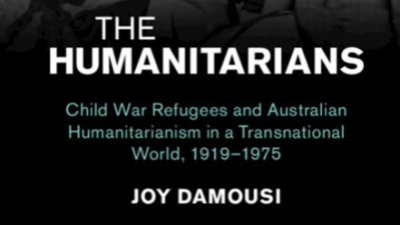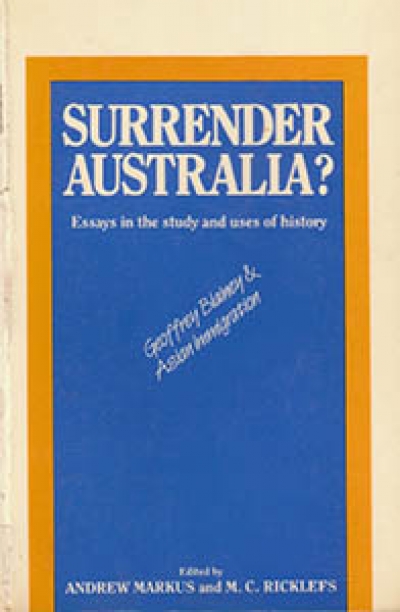At the August 1984 conference of Australian historians, the Public Lecture Theatre at Melbourne University was packed to hear a panel of distinguished colleagues discuss Geoffrey Blainey’s creation of the public debate on Asian immigration. Blainey did not attend. His mentor Manning Clark did, though he refused to denounce his most famous pupil. Surrender Australia? is largely the product of that meeting. Historians take themselves rather seriously and already there have been complaints that a concerted attack on one of the discipline’s favourite sons is unprecedented. Letters to The Age were denouncing the book as ‘an attack on a great Australian’ well before it was published or the correspondents could see the contents. Public controversy is certainly rare among local historians, being largely confined to such esoteric matters as whether Australia was settled to get rid of convicts or to acquire flax, an argument in which Blainey took a major role. In a small society, academics do not usually denounce each other in the fashion long acceptable in central Europe or America. Equally, they do not often engage in public controversy on matters which draw in the vulgar multitude. While professional historians are not very radical, they mostly subscribe to liberal views, among which tolerance for minorities and for the ideas of others are the most acceptable. Blainey presented his colleagues with a dilemma. They could draw up their skirts and pass by on the other side, or they could publicly disagree with him.
...
(read more)




